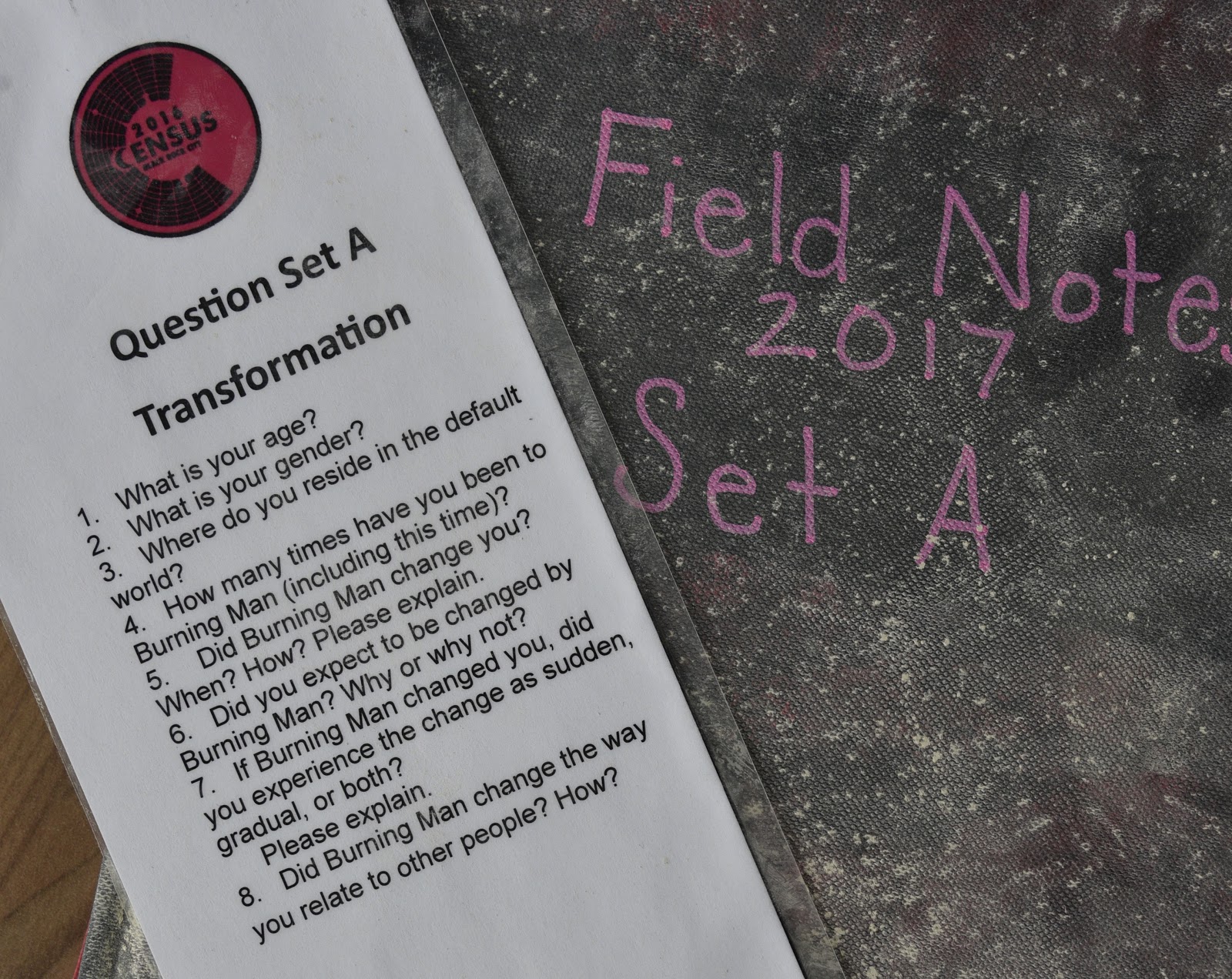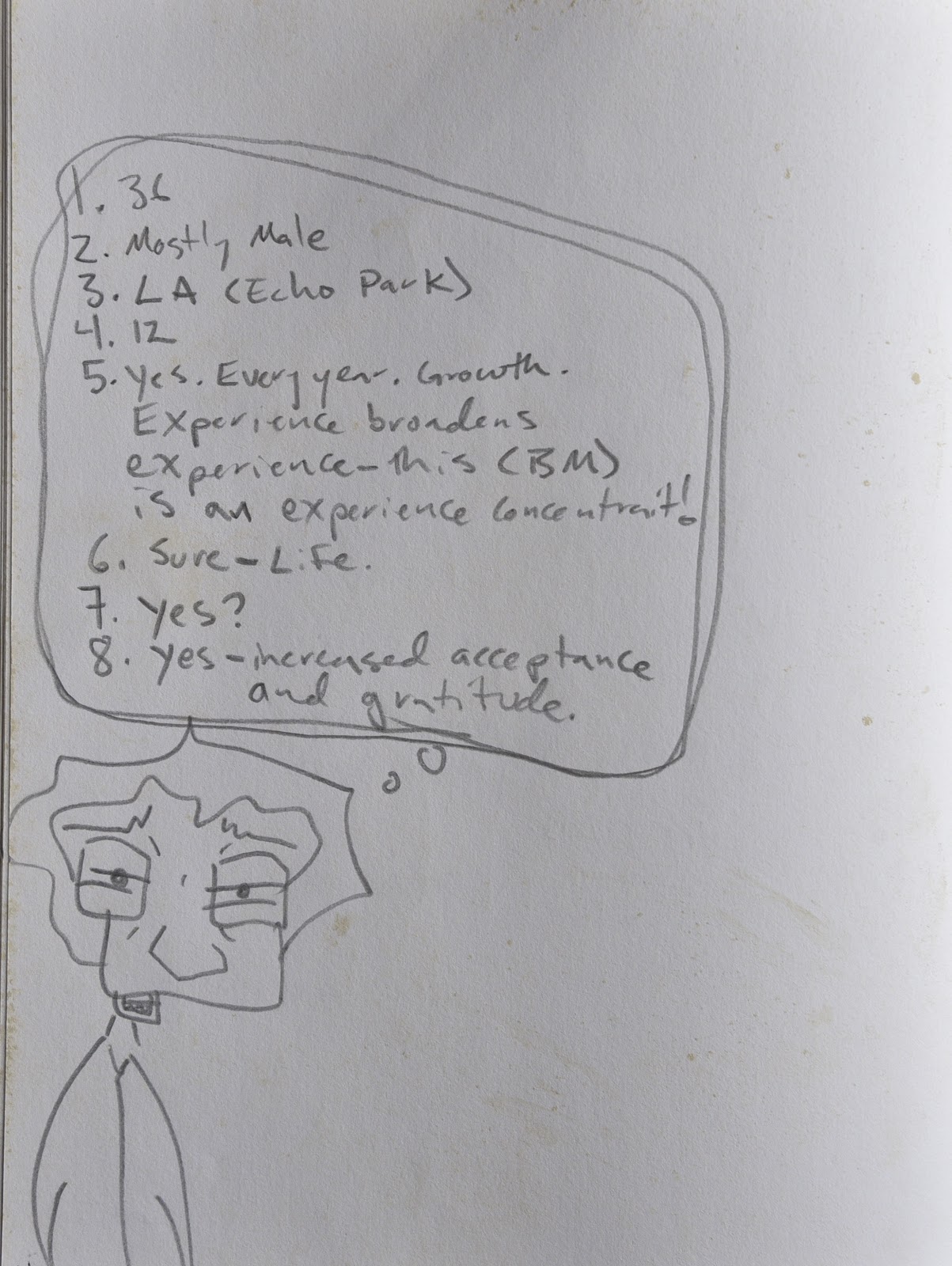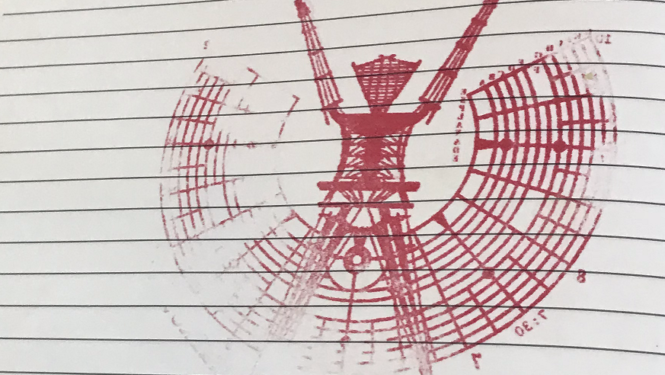By Sholeh Salimi
‘Transformative experiences’ are regarded as those moments when one’s belief system has been altered or when one uncovers new knowledge that was previously unknown. My first year on playa proved a powerful example of this and would inform my statistical quest to find out what makes interactions on playa transformative.
I decided to attend the Burning Man event for the first time in 2017 in pursuit of educational, personal, and spiritual growth. Before my arrival, I set an intention for myself: “I will identify internal barriers hindering my ability to live my best life.”
Once I pulled up to the gate of Black Rock City, I was immediately welcomed Home. I made a dust angel, banged the gong, and screamed, “I am not a virgin anymore”, over and over again. But despite the warm welcome, I still felt isolated, insecure, and worried that I would be found out as an imposter posing as a Burner. My supplies were limited and I began to wonder if my internal resources were also lacking.
As the sun set, I realized that I had never set up a tent before. My motivation halted once the elastic band in the tent’s metal pole snapped; I began to doubt my ability to fully participate in Burning Man. My distress was ameliorated immediately as I received comfort, kindness, and reassurance from my new campmate. She told me about the challenges of her first Burn and all the adaptations she had made this year as a result. I felt normalized in my misfortune and I was reminded to be softer to myself.
After the second night of getting in and out of the makeshift tent, a new campmate looked at my situation, politely asked questions, and offered a remedy. I watched him as he patiently threaded the elastic string through the pole, secured the fracture with many knots, and constructed a complete tent instantly.
I was so grateful, yet immediately began to ruminate about how ineptly I had prepared for Burning Man. But my thoughts continued to be interrupted by beautiful interactions with strangers who felt like old friends.
These interactions with fellow Burners were transformative as they created space for me to critically explore habitual thoughts and feelings about myself that had been getting in the way of my success. Authentic interactions with others provided space to engage in an open dialogue about ways to live and love, and how to regard my experiences with gentle curiosity rather than judgment.
Looking for the Link
The care, warmth, and sincerity I received from others also piqued my curiosity to statistically explore the link between social interactions on playa and transformative experiences.
I sought answers via the Field Notes Project, notebooks at the Census Lab on playa where Burners have a space to write, draw, or otherwise communicate answers to questions on various topics.
The Field Notes Project provides a rich source of qualitative data as it captures demographic information (e.g., gender, age, location in the default world, number of times one attended Burning Man) and invites Burners to respond in a genuine and vulnerable way to open-ended questions.
For example, one cluster of questions in the Field Notebooks asks Burners to describe instances that made them laugh or cry over the week on playa. Another set of questions asks Burners if they dance and sing more on playa than in the default world.
A question in the Field Notebooks that I found particularly intriguing focused on if and how relationships and romantic entanglements are experienced differently on playa compared to the default world.

In reflecting on the frequency and ease with which I had deep and meaningful interactions on playa, I wondered how the culture of Black Rock City (BRC) might facilitate more loving and connected emotional and social relationships amongst Burners on playa.
Similarly, in recognizing that my interactions with others had a transformative quality, I wondered if this was a common experience among the Burning Man community and what makes relationships on playa feel differently from those in the default world.
I found exploring responses to this notebook question, “How are your relationships and romantic entanglements with people different on playa than the default world?”, to be the best way to conceptualize (and hopefully answer) my questions.
(It is important to note that because people chose to respond to the notebooks, rather than being randomly chosen like in other surveys, the data has what researchers call “selection bias” and is not generalizable. This means we can only describe the population that wrote in the books, rather than the whole population of the city.)
Doing the Data
Working with a colleague and close friend who is a statistical wiz, I coded participant responses to the question from 2015, 2016 and 2017. They included a spectrum of “No difference,” “More liberating and open,” ”More authentic,” “More intense,” “More intimate and immediate,” “More sensual and more physical contact,” and “Spectrum indicative of some unidentifiable change.”
In 2015, one female Burner wrote: “Relationships here feel more simple. It is possible to focus more time and energy on the connection and filling one’s own needs than in the default world. There is just less BS, fewer social expectations, less responsibility to be preoccupied with.” In contrast, one male Burner in 2017 wrote: “I don’t see much of a difference!”
This discrepancy highlighted the need to identify if more or less Burners experience a difference in relationships and romantic entanglements on playa and what qualities make these relationships feel differently from those in the default world.

We found that nearly three in 10 (28%) Burners reported experiencing relationships on playa that were more liberating and open. Approximately one in 14 (7%) Burners reported experiencing relationships that were either more authentic, more intense, more immediate or intimate, and more sensual or more physical contact.
Overall, almost one quarter (23%) of Burners reported experiencing an unidentifiable change in relationships on playa compared to default world. This pattern was consistently evident when breaking responses down by year.
Roughly one in five (21%) Burners reported experiencing no difference in their relationships on playa as compared to the default world.
When gender was included as a variable, we found general consistency between reports from women (81%) and men (79%) experiencing a difference, whereas less than half of non-binary Burners (44%) reported experiencing a difference in their relationships and romantic entanglements on playa as compared to the default world.
This finding invites further exploration of how gender, sexual identity, and attraction influence how relationships are experienced on playa as compared to the default world.
Although my transformative experience at Burning Man was in part facilitated by interpersonal interactions I had on playa, it is not unique. Many Burners report having had similarly profound relational experiences.
Further Questions
I initially hypothesized that the physical and social environment of BRC alone would influence the development, quality, and level of depth of relationships engaged in on playa. But it is unclear what exactly influenced the difference that Burners describe experiencing in their relationships and romantic entanglements on playa.
After reflecting on the results of the analyses and my own personal experiences, I wondered about how the embodiment of the 10 Principles by each art installation, camp, interaction, and experience at Burning Man influences the change some Burners reported experiencing.
Similarly, how does one’s endorsement of each Principle influence the way one engages in relationships and romantic entanglements in BRC? Are relationships experienced differently at other mass gatherings?
Lastly, how can we capture the qualities that make relationships on playa feel differently so we can experience them later in the default world?
The Field Notes Project seems to offer readers and researchers a way to think critically about the experience that is Burning Man. I am hopeful that as years progress, the Field Notes Project will continue to capture the nuance around Burners’ attitudes, beliefs, and experiences on playa as compared to the default world, and more clearly link how aspects of BRC facilitate transformative experiences.
To be continued…
Top photo by BRC Census


I’d be interested in knowing what proportion of our participants enjoy the warmth of a loving family, and/or have the support of coworkers, vs. those who attend – at least in part – out of loneliness in the “real world.”
Report comment
I agree this would be a useful metric. Many, myself included, were attracted to the inclusiveness having felt like outcasts previously.
Report comment
I’m an “older” burner (*67) and I am curious from the Census Lab, how many of us there are out there?? Thanks!
Report comment
Roughly 7% of burners were over 60 in 2018
http://brccensus.2018.popanalysis.s3-website-us-west-1.amazonaws.com/sociodemo.html#age
Report comment
Thanks for this article, Sholeh, looking forward to the next instalment – I’m coming first time this year and I too, am filled with “academic” curiosity about what makes BM transformative.
Report comment
Comments are closed.